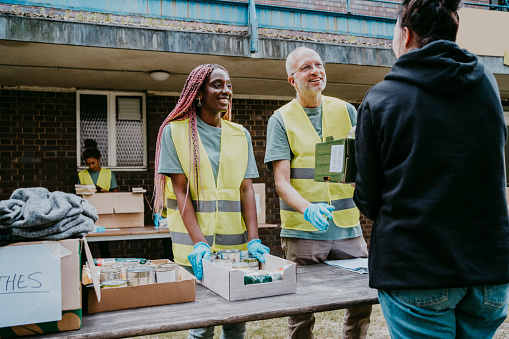
The amount in dollars of charitable donations has declined. Perhaps venture philanthropy is the answer.
A neighbour was laid off work at a non-governmental organisation while the nephew’s studies were cut short. The two are victims of a donor philanthropic organisation that unprecedentedly stopped sending donations to Africa.
Amid international foreign aid cuts by the Trump administration, a can of worms has been opened about humanitarianism and social sector financing, sparking fresh discussions around the world.
Not-for-profit organisations known for supporting social development while empowering and employing millions of people are losing funding, threatening our progress to sustainable development.
Philanthropy contributes $2.3 trillion — or 3% — of the world’s GDP. Africa received $3.8 billion from international donations from 2019 to 2021.
But, according to Gallup data, the value of philanthropy declined from 2024 to date by 2.1%, signifying philanthropic burn-out, thus affecting numerous humanitarian activities and the not-for-profit sector.
After World War I rich men, moved by conviction, convenience and coercion to donate for a common good, defined the evolution of philanthropy.
In the 1900s, families and the wealthiest people set up charity trusts for the less privileged parts of Africa, Asia, Europe, Oceania, North America and Latin America.
Philanthropy for decades has supported the Church, civil society organisations, international development agencies and grassroots community groups, helping the world’s social sector movements to blossom.
Jamsetji Tata, the founder of the Tata Group, set the precedent; he was the world’s biggest philanthropist of the 20th century, donating more than $100 billion mainly for healthcare and education. .
Philanthropy has been the cornerstone of humanitarianism and social development in many African nations.
Each time parts of Africa are hit by natural disasters, civil wars and global shocks, many governments are not in position to meet the magnitude of calamities and need aid.
A backslide in philanthropic contributions means the social sector cannot longer depend on these contributions.
According to Forbes, billionaires Elon Musk ($369.7 billion) and Jeff Bezos ($116 billion) declined to sign the Giving Pledge card, a promise by the world’s wealthiest to dedicate the majority of their wealth to charitable causes. Bernad Arnault ($130 billion), Gautan Adani ($130 billion), Larry Page ($88.7 billion) and Mukesh Ambani ($88.2 billion) are not known to have participated in philanthropic activities.
Surely these and other billionaires could make significant contributions towards humanitarianism and social development.
Our hopes now hinge on venture philanthropy, which, according to Sopact, is “a form of philanthropy that applies the principles of venture capital to charitable giving. It involves providing financial and non-financial support to nonprofit organisations to create long-term, sustainable change.”
According to Forbes, there are 3,028 billionaires worldwide who, combined, have a net worth of $16.1 trillion.
But some view philanthropy as a problem because it creates dependency.
And some billionaires have a different mindset about charitable trusts and the not-for-profit sector, believing this is “spoon-feeding” Africa’s majority.
Africa needs to shift from being a donor recipient to become a driver of venture philanthropy.
African countries together have 22 billionaires with a total net worth of $105 billion, according to Forbes.
South Africa takes the lead with seven, and Nigeria and Egypt with four each.
Local philanthropy is already contributing $40 million to Africa, signifying that the continent can leverage her billionaires into venture philanthropists.
For example, Aliko Dangote ($23.9 billion) donates $100 million for education, joining Patrice Motsepe, Yassen Mansour and Mohammed Dewji in the world of philanthropy and social investments.
African governments can make better policies and tax incentives to encourage the generous spirit of philanthropy;
Robert Kigongo is a sustainable development analyst. X: @kigongokr7



